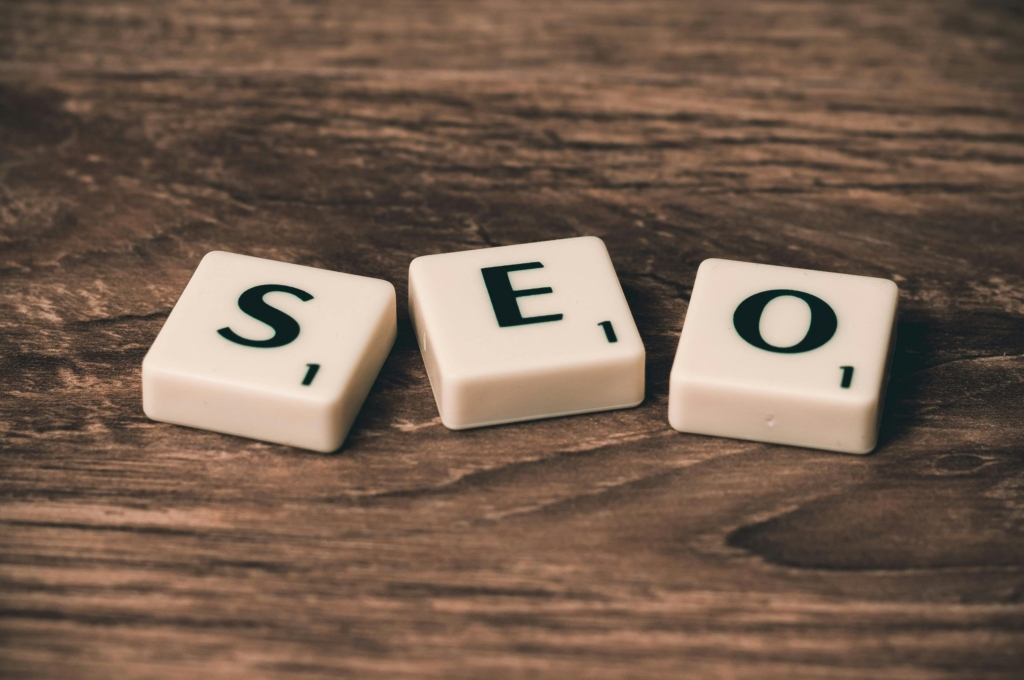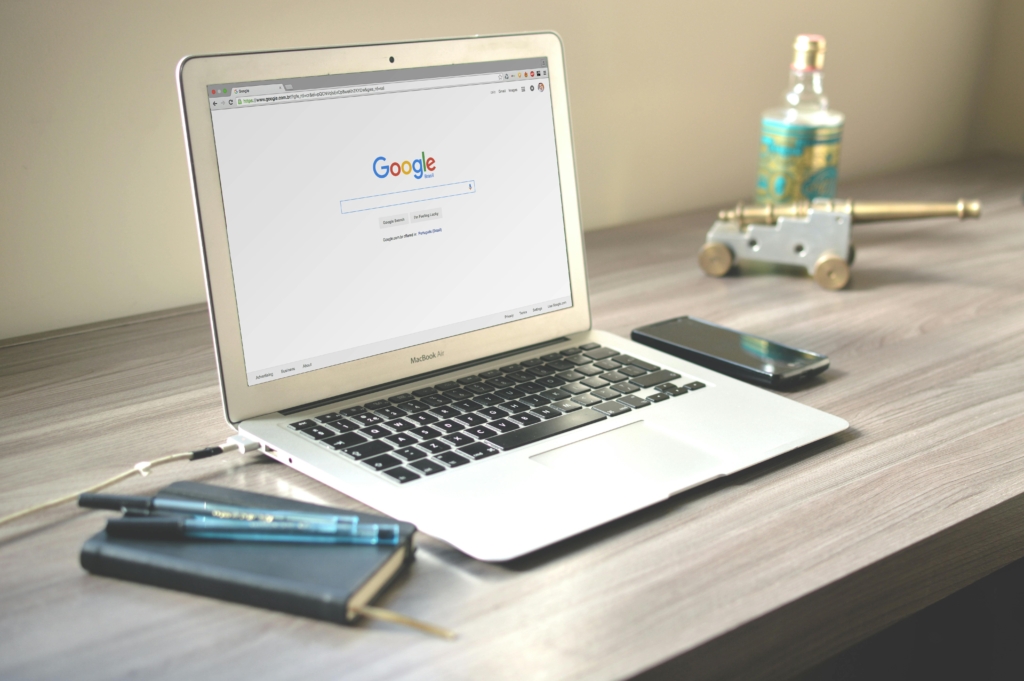Whether you want to show up in organic search results or want a prized position at the top of Google ads, solid marketing strategies can get you where you want to go. But when it comes to SEO vs PPC, which should be your focus?
There might be more overlap here than you think. In this breakdown, I’ll answer your questions to help you decide between SEO and PPC.
Let’s get started!
What is SEO?

SEO stands for search engine optimization. It refers to the process by which site owners try to rank as high as possible in the search engine results pages. This is helpful because search engines bring more traffic to websites than any other source.
When someone searches for products or services you sell on your website, you want them to find you organically, with little money spent on advertising.
The goal is to create content that will get people clicking. That usually means showing up in the first three spots on Google, which see the majority of the traffic.
In fact, 28.5 percent of people click on the first result on Google. The number drops off sharply for each subsequent placement.
Of course, you could hire an SEO content writer like me to flesh out your content marketing strategy.
A good writer knows how to naturally integrate keywords and important elements into your content to maximize its effectiveness the search engine algorithms. It’s a small investment in your strategy that can yield big dividends.
What is PPC?


On the other hand, you might be wondering how a PPC campaign could impact your strategy. PPC or pay-per-click is a way to show up in those coveted top sponsored spots on the search results. You only pay for the number of times someone clicks on your link. If they don’t click, you don’t have to pay for the results.
Where SEO is focused on organic search results, PPC campaigns are more targeted to paid search. Both SEO and PPC have their place in a robust marketing strategy.
Pay-per-click and Google ads can give you a leg up if you need to see immediate results. They allow you to target keywords precisely and give you a solid feel for the market.
You can use the data from PPC advertising to examine your success with any given campaign, including click-through rate, conversions, and cost per click.
SEO vs PPC: What’s the Right Option for Your Marketing Strategy?
How do you decide between SEO vs PPC? Here are a few questions you might ask yourself before launching a search engine marketing campaign of any kind.
Do You Need Immediate Results?


While SEO can be a powerful way to harness Google and show up for more relevant keywords, it isn’t going to happen overnight. Instead, you will need to study the long game. Every time someone clicks on your link is cause for celebration. However, it won’t give you the results you are looking for in a matter of days—and maybe not even in a matter of weeks.
SEO and PPC are very different because PPC can give almost immediate results.
With the right budget, you can appear at the top of Google’s search results starting today. And so if you need to see traction with a new offer quickly, PPC is the best approach.
Are You Testing Something New?
Search engines take a long time to index your pages and present new results. Sometimes, you may have to pay for PPC marketing to show up in the search engine result pages quickly. If your digital marketing strategy wants to try and develop a new offer rapidly, paid search campaigns are likely your best bet.
An SEO campaign is great but won’t allow you to test and evolve quickly.
Are You Looking for Long-Term Growth?


Unlike PPC, search engine optimization can sustain you over the long haul. When you turn off the paid search ads, you turn off the traffic flow to your web pages. A niche site owner focused on ensuring that their business grows long-term will want to evaluate their SEO strategies.
Search engine optimization allows you to climb to the top of the search engine results without having to spend money time and again.
Once you show up at the top, you can focus on doubling down on a core strategy to sustain this type of long-term growth.
Here is a great guide on how to do SEO for your website growth in 12 simple steps.
Does Your Business Face Fierce Competition?
A business that deals in competitive keywords may want to consider pay-per-click ads. This gives you an extra leg up regarding your ranking in the search engine results. You show up at the top and can work on refining your ads until you get the results you want.
Both SEO and PPC can be beneficial, but it depends on how much time you can afford to give to these methods. SEO is great for long-term competition because it can push you above your competitors. But paid search is a boost right here and now while you work on this digital marketing strategy.
Do You Know Your Audience?


PPC marketing is only truly effective if you know just who your target audience is. You need to be able to sort them by demographic and know who is searching for relevant keywords like yours. If you have no idea who your target audience is, you will have difficulty setting up PPC ads.
Of course, SEO requires you to know your audience as well. You should know what terms people will search for to find your brand.
Knowing your audience is a crucial part of marketing, but it matters especially for PPC, where you are paying for each view and click that someone makes. Targeting interests, income, and other demographics is crucial.
Are You Looking to Build Know, Like, and Trust?
A sponsored post at the top of the search engines might not do much to help your brand credibility. PPC ads are great for short-term gains and targeting your specific audience if you have a good idea who they are and what they want.
However, it might be more important for you to consider the long game and build knowledge, likes, and trust with SEO.
Think of it this way: would you rather go with someone who shows up at the top of the search engine results pages, showing that they are an expert, or would you go with a no-name and potentially untested alternative?
SEO allows you to show up in organic search results and lets your audience know you can be trusted to deliver your promises.
Do You Have Time to Invest in Content Creation?


A PPC campaign does require some time to set up. You might have to A/B test your ad copy, narrow down your target audience demographics, and set up a budget with your Google Ads console. The investment of your time in SEO campaigns is going to be greater, though, so consider this when choosing between SEO vs PPC.
Content creation is a time-consuming endeavor. You have to write the blogs and landing pages (or hire a freelance writer to do it), perform your keyword research, and format each page. It can take several hours for each piece of content you want to create. And time is money.
While you will save the cost on each click, you will have to invest your time and energy into SEO.
Do You Want to Improve User Experiences?
Search engines value websites that center the user experience, resulting in more organic traffic to your page. If you were a website user, would you want to visit a site focused on selling you a product or one that provided some type of value to you?
Search engine optimization is about creating a website your audience will love to visit repeatedly as you create content. On the other hand, PPC ads are designed solely to sell them something. It isn’t necessarily about user experience and may not entice them to return when their transaction is complete.
How Much Money Do You Have to Invest?


No conversation about SEO vs PPC would be complete without mention of the financial aspects of both. If you choose to run a PPC campaign, you will have to front the initial cost of the advertisements on the search engines. Every time someone clicks, you will owe anywhere from a few cents to a few dollars (the average is usually right around $2.69).
That means you need to have some money upfront.
However, SEO isn’t necessarily free. You will either need to invest time in creating content or hire a writer to create it for you. The average SEO cost is anywhere from $0.08 to $0.20 per word.
Being honest with how much money you can afford to invest will help you determine whether you should run PPC campaigns or focus more on growing your organic traffic with SEO.
Using SEO and PPC Strategies Together
But wait, you might be saying. It seems like there is some overlap between SEO and PPC campaigns. And you would be right! Here are a few instances where these services overlap and how to leverage both to get the results you want on the search engines.
Retarget Your Customers When Needed


Your customers are finding you via organic rankings in the SERPs, but they aren’t quite ready to commit to your product or service — yet. Maybe they interacted with your website or created a cart without completing their purchase. Now, you can retarget customers interested in your offering with a PPC campaign.
A paid ad campaign can put your brand back in front of users who have already interacted with you.
This is a great way to let SEO do the heavy lifting by building organic traffic. Then, PPC ads can bring those customers back to you at an opportune moment when they are more ready to make a purchase.
Develop a Keyword Strategy


What are people looking for when they search for your brand? This is equally important for both SEO and PPC because you need to know what keywords to target. Start with keyword research; you will have a leg up on the competition.
Here are some of our best articles on finding a keyword research strategy that works for you:
Keep in mind that targeting competitive keywords can be expensive, and you may want to look for keywords with low competition and high search volume.
My favorite tool for this is Keysearch because it is an affordable option with great, detailed results for what you’re after. It is also the tool chosen for many of the success stories we share on Niche Pursuits.
Check out our full Keysearch review here to learn more.
Drive Traffic to Created Content with Paid Ads


Why choose between SEO vs PPC? Maximize the content you create by driving traffic to it with paid search.
Let’s say you work with a great freelance writer and a graphic designer who creates an interesting infographic that solves a problem your target audience struggles with. You could wait for that piece of content to go viral, or you could help it along by directing paid search traffic to it with PPC ads.
The benefit is that you build authority with your audience as they see you create valuable content. They understand that you have insider knowledge of your industry and are more likely to trust you. In other words, you are building on the know, like, and trust factors we discussed earlier.
People are more likely to buy as a result if you can do this successfully.
Maximize Data from PPC Ads for SEO Strategies


PPC advertising is a great way to quickly get data about what works with your audience. It gives you a faster turnaround time to know what copy works best, what offers people are intrigued by, and the specific demographic that loves your ad copy. Take all of this data and mine it for your new SEO strategies.
You can turn this into organic content once you know what keywords perform best. Repurpose some converting copy on paid search campaigns and transform it into evergreen content for your site. You can build organic traffic around the same pillars as a successful PPC advertising campaign.
Final Thoughts: SEO vs PPC Strategies
Google search is highly competitive, but you can start ranking quickly with a combined strategy of both SEO and PPC campaigns. Both require an investment from you, whether that is in time or money. However, the benefit is that you start to build an audience faster and can secure more long-term organic traffic even once your search ads end.
How can you incorporate more of these strategies into your search engine marketing today?
